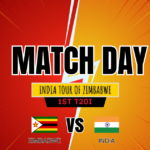Delhi, November 5, 2024 — Today, India mourns the loss of Sharda Sinha, one of the nation’s most beloved folk singers, who passed away at the age of 72. Known for her powerful and soulful renditions of Bhojpuri and Maithili folk songs, Sinha breathed her last at AIIMS in Delhi following complications from multiple health issues, including blood clotting, kidney failure, and respiratory distress. Her voice, which had carried the fragrance of her native Bihar to every corner of the country, is now silent forever.
Sinha had been hospitalized for some time after her health took a turn for the worse. Despite treatments and support from her fans and family, she ultimately succumbed to her illness. Her passing marks a profound loss for Indian folk music, particularly in the realms of Bhojpuri and Maithili traditions.
Table of Contents
ToggleEarly Years and Career Beginnings
Sinha was born in 1952 in Bihar’s small town of Samastipur, and his roots in folk music were deep and personal. She grew up surrounded by rural Bihar songs, and she was fascinated to her culture’s music from a young age. Her family nurtured her skill, recognizing her unique voice. Sinha started her career in local circles, performing traditional songs at family gatherings and community celebrations. Over time, her name came to represent the spirit of Bihari folk music.
Rise to Fame and Cultural Impact
Sharda Sinha’s ascension in the Indian music scene was both quick and steady. Her songs spoke to listeners because they addressed topics of ordinary life, love, and devotion that the people of Bihar valued. Her music, well-known for its Chhath and wedding melodies, became a vital component of her region’s festivals.
Her fame skyrocketed as she brought folk tunes into the spotlight, showing that traditional music had a place in modern India. Sinha’s work gives expression to Bihar’s culture, portraying the joys, sufferings, and perseverance of its people. She was awarded the Padma Shri in 1991 and the Padma Bhushan in 2018 for her extraordinary contributions to Indian music and culture, respectively.
Contribution to the Bollywood
Sinha’s distinct voice and genuineness landed her partnerships in Bollywood, where she appeared on several important film soundtracks. Her song Kahe ToSe Sajna from the film Maine Pyar Kiya, as well as Sasura Bada Paisawala, were credited with introducing folk music to the mainstream. Her work in Bollywood brought Bihari culture to the forefront of Indian society, particularly in films such as Hum Aapke Hain Koun and Gangs of Wasseypur.
Health Struggles and Family’s Support
Sharda Sinha’s final years were characterized by a struggle with many health issues, particularly after her husband died. The iconic folk singer has battled multiple myeloma, a kind of blood cancer, for several years. Her condition necessitated significant therapy, and she was admitted several times to the All India Institute of Medical Sciences (AIIMS) in New Delhi for critical care. Her son, Anshuman Singh, kept followers updated on her health and even asked them to pray for her recovery. She was frequently on ventilator support because of respiratory difficulties, various organ failures, and blood clots in her lungs.
In these trying times, family support was especially important. Her son and close relatives were by her side, providing frequent updates to the public and receiving prayers from admirers. Her son also expressed on social media how much it meant to the family that people were praying for her, particularly during the Chhath Puja, a festival closely associated with Sinha’s music. Prime Minister Narendra Modi and other political figures expressed their well-wishes for her recovery, emphasizing the cultural impact she had on the country and the profound significance of her music.
The constant battle against cancer was challenging, but Sinha’s tenacity shone through as she continued to communicate with her admirers despite her difficulties.
Family’s Hope and Fans’ Prayers
Despite her deteriorating condition, her family remained optimistic, with her son Anshuman imploring followers to pray for his mother’s healing. During Chhath Puja, Sinha sent a special message and song to her admirers from her hospital bed. This gesture moved fans deeply, adding to their admiration and respect for her. Fans and well-wishers flooded social media with prayers and messages of support, wishing for her recovery.
Her Final Days and Passing
Sharda Sinha’s condition deteriorated on the morning of November 5 due to acute respiratory distress. She was put on a ventilator, but her body was unable to recuperate from the slew of health problems she had suffered. Doctors verified her death at 9:00 PM, signaling the end of an era for folk music.
Tributes from Fans and the Music Industry
The death of Sharda Sinha has elicited an emotional response from fans and important individuals in the Indian music business. Sinha, known as the “Voice of Bihar,” made an everlasting impression on Indian folk music with his works in Bhojpuri, Maithili, and Magahi. Fans have been loud on social media, sharing memories and paying tribute to the artist who revived classic tunes with her powerful voice and strong cultural connection. Many people remembered her famous Chhath songs, which were integral to the festival’s celebrations in Bihar. These songs were extremely meaningful to her listeners and will long carry the warmth of her legacy.
In addition to her followers, leaders and musicians have offered their condolences and respect. Uttar Pradesh Chief Minister Yogi Adityanath described her death as a “irreparable loss,” emphasizing her position as a cultural ambassador for Indian folk music. Sinha’s services garnered her national recognition, including the Padma Bhushan, and she was warmly praised for connecting traditional music to new media.
Legacy and Influence on Future Generations
Sharda Sinha’s legacy is defined by her ability to bridge generations via her music and instill a strong pride in Bihar’s folk customs. Known as the “Nightingale of Bihar,” she not only elevated Bhojpuri and Maithili songs to national prominence, but she also inspired countless future musicians to value and perpetuate these traditions. Her distinctive blend of folk and classical elements made her songs particularly evocative and ageless, anchoring a cultural identity in her music that connected with listeners of all ages and backgrounds.
Sinha traveled extensively as a cultural ambassador, playing for audiences in both India and overseas. Her focus on traditional festivals, particularly Chhath, made her music an integral element of these celebrations, which helped to popularize regional music beyond its geographical borders. Sinha opened the path for other folk musicians to be acknowledged and valued within India’s larger cultural scene by receiving various accolades, including the Padma Shri.
Sinha’s impact can also be evident in newer artists’ efforts to preserve Bihar’s folk traditions. She emphasized the need of staying linked to one’s roots and encouraged artists to incorporate local themes into their work. Her legacy continues on through the songs sung at festivals and weddings across Bihar, as well as the voices of artists who continue to be inspired by her style and passion.
Conclusion
Sharda Sinha’s death is a significant loss for India’s musical and cultural legacy. Her voice, which once embodied the spirit and culture of her motherland, will be much missed. In her honor, her family, friends, and admirers remember her not only as a singer, but also as a cultural ambassador who bridged the gap between past and present. As we bid farewell to this renowned vocalist, we commemorate her life and legacy, which will continue to inspire for years to come.














